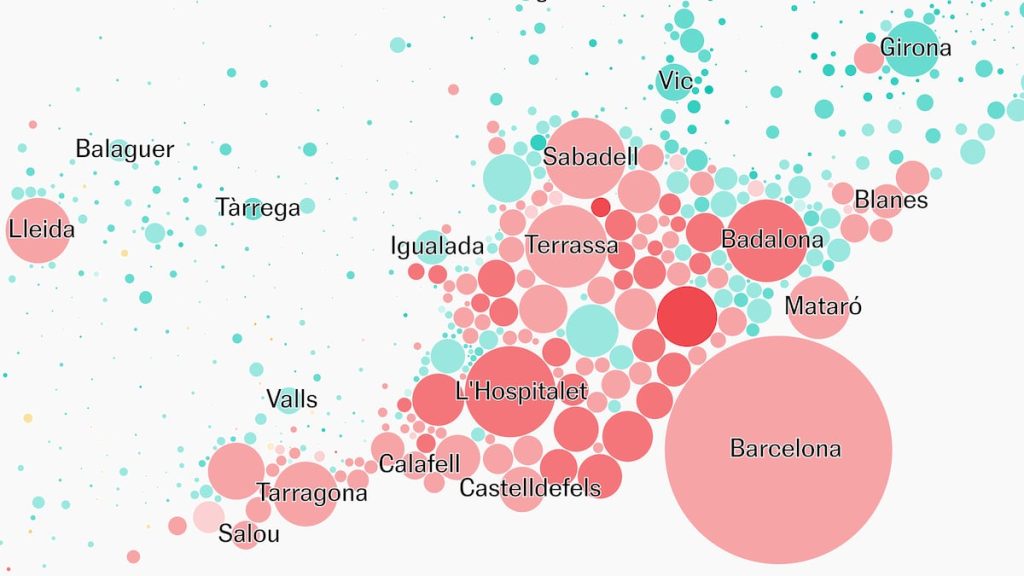Catalonia has voted for the tenth time in 12 years, the fifth time to the Parliament. Since 2012, four different parties have been the leading force: CiU, Junts pel Sí, Ciudadanos, and PSC. The PSC has won for the first time in votes (28%) and seats (42), rising 5.3 points since 2021. They have not won in as many municipalities as Junts, but have won in the ten largest cities. The sum of Junts, ERC, CUP, and Aliança Catalana (AC) fell to 61 seats, seven below the 68 needed for a majority. This is a historic setback as, since 1984, nationalist parties have always held a majority in the Parliament of Catalonia – until this Sunday.
The sum of pro-independence parties has fallen in three-quarters of Catalonia’s municipalities compared to four years ago. They have lost votes, up to seven points, in medium and large cities. Only in municipalities with less than 1,000 inhabitants do they fare better. The desire for independence is also declining according to polls before the elections, particularly among young people. Non-independence parties win in the poorest neighborhoods, with the sum of PSC, PP, Vox, and Comuns reaching 67% of votes in the poorest areas. Family origin is the best predictor of support for independence, with higher incomes associated with greater support for independence.
Esquerra Republicana has lost 7.3 points and 13 seats from 2021, with half of its voters changing their preference to other parties. Junts seems to have benefited most from this shift. The rise of PSC and PP also has clear origins, with voters from other parties choosing them in these elections. The configuration of the non-nationalist right, consisting of PP, Vox, and Ciudadanos, has gained more votes compared to previous elections, but is still far from their 2017 result. A new extreme right-wing independence party, Aliança Catalana, has entered the Parliament, achieving 3.8% of votes and two seats.
The entry of Aliança Catalana was a key development on election night, as the party of extreme right-wing secured two seats. Despite falling just short of gaining additional seats in Barcelona, their presence could complicate the formation of a government. The accuracy of pre-election polls in predicting results was relatively high, with only minor deviations in the results. A hypothetical agreement between PSC, ERC, and Comuns could secure a majority in the Parliament, but negotiations will be necessary.
The outcome of the elections leaves various possibilities for government formation, with a potential coalition between PSC, ERC, and Comuns having the majority required for governance. The remaining votes from Spanish citizens residing abroad, to be announced this Friday, could also influence the distribution of seats. The socialists are contending for the last seat in Lleida, Girona, and Tarragona. The future political landscape of Catalonia will depend on the negotiations and agreements reached between the different parties to form a stable government after the elections.















